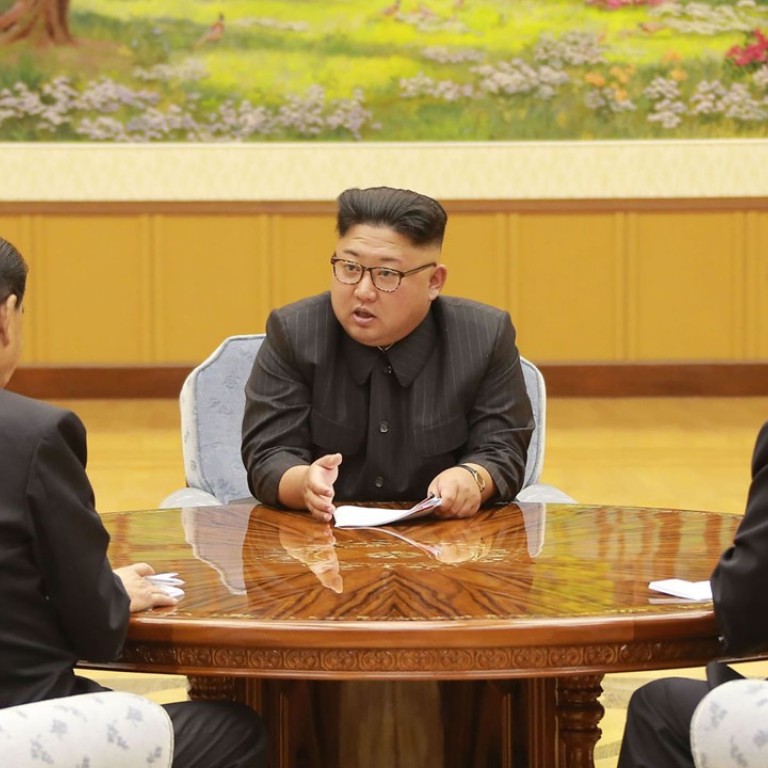
Pyongyang peace deal best for Trump
The usual condemnation and threats are not the answer when it comes to the latest game-changing nuclear test by Kim Jong-un
North Korea’s sixth, and most powerful, nuclear test lays to rest doubts about the nation’s weapons capabilities. Whether Sunday’s explosion was of a hydrogen bomb miniaturised to be able to fit on the head of a missile, as claimed, has yet to be independently verified. But the strength of the blast and launches of long-range rockets able to reach the continental territory of arch-enemy the United States makes clear that the world’s efforts to stop Pyongyang’s proliferation have failed and that different thinking is needed. A sensible direction to take is dialogue to push for a peace treaty to finally end the Korean war.
Another nuclear test was anticipated, but its strength has made governments realise that the claims of North Korean leader Kim Jong-un can no longer be viewed as exaggerated boasts. The seismic signal of the explosion was 10 times bigger than that of the fifth trial a year ago, putting the yield at about 100 kilotons, similar to weapons deployed by established atomic powers. Pyongyang’s achievements have been paced and predictable and come quickly, despite warnings from the UN Security Council, the US and neighbours and the pressure from increasingly toughened sanctions.
But although the latest test should be viewed as a game-changer, the response was the usual condemnation and threats. US President Donald Trump continued to hint that a military response was on the cards and talks were not an answer, a view thankfully not shared by defence secretary James Mattis, who stressed the importance of a diplomatic solution. South Korea carried out a live-fire exercise of missiles from the air and ground.
Trump also suggested that countries which traded with North Korea should also face sanctions, a remark squarely aimed at Beijing, Pyongyang’s closest ally. But China, which has signed on to UN sanctions, has limits; to do more would risk regime collapse in the North, bringing unbearable humanitarian, security and strategic consequences for the Chinese. That is not to say that Beijing and Moscow, which also condemned the latest test, are willing to accept the status quo. But nor do they want an ever more unpredictable and dangerous North Korea, the nuclear proliferation of South Korea and Japan or worst of all, a devastating war that will directly affect them.
The most practical approach for the US is a peace treaty, with a strictly monitored nuclear freeze as a central condition. China could help broker and smooth dialogue. Pyongyang has for decades sought such a pact with Washington, the armistice that ended the Korean war being seen merely as a suspension of the conflict. There is no more opportune time for Trump to broach such a deal.

